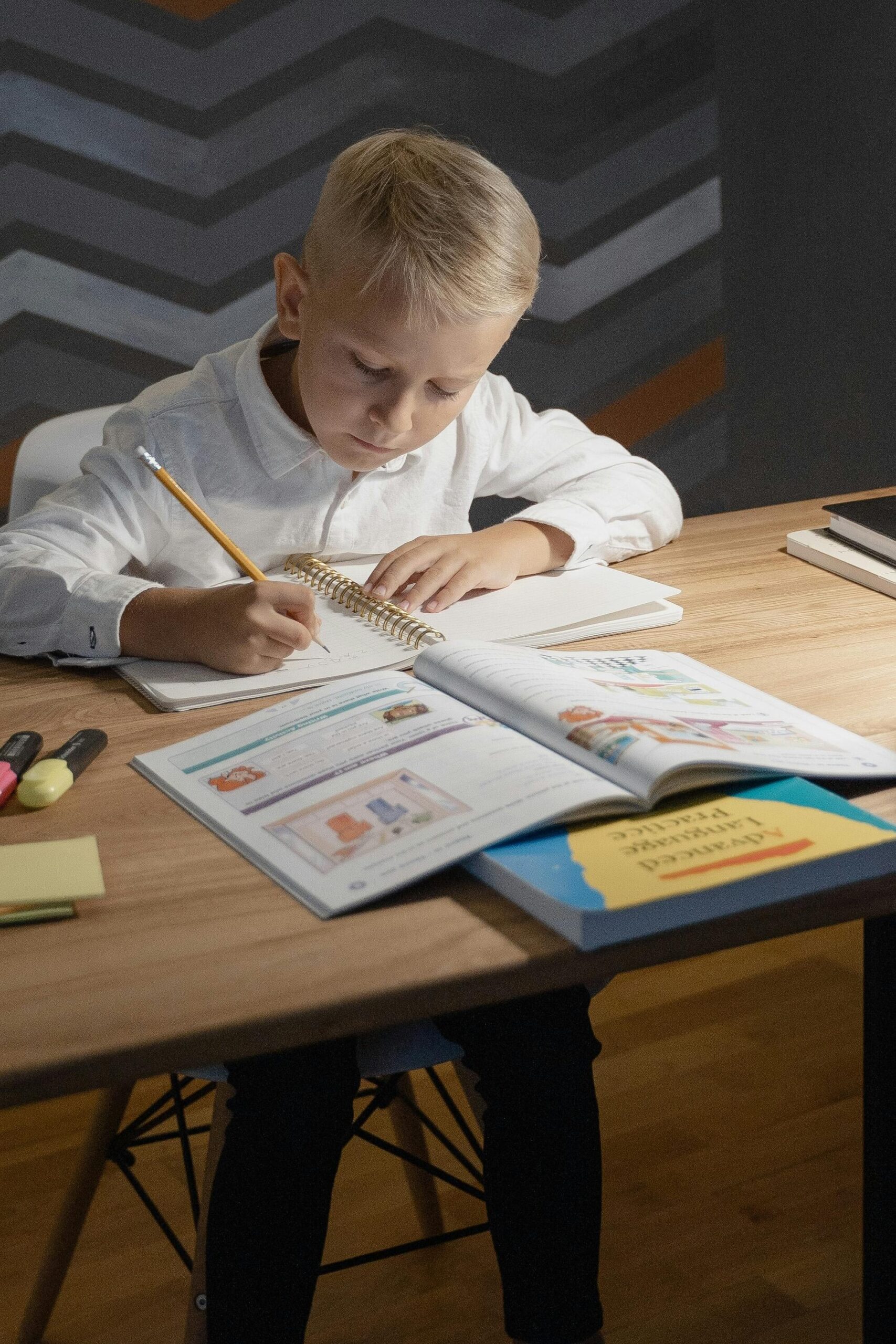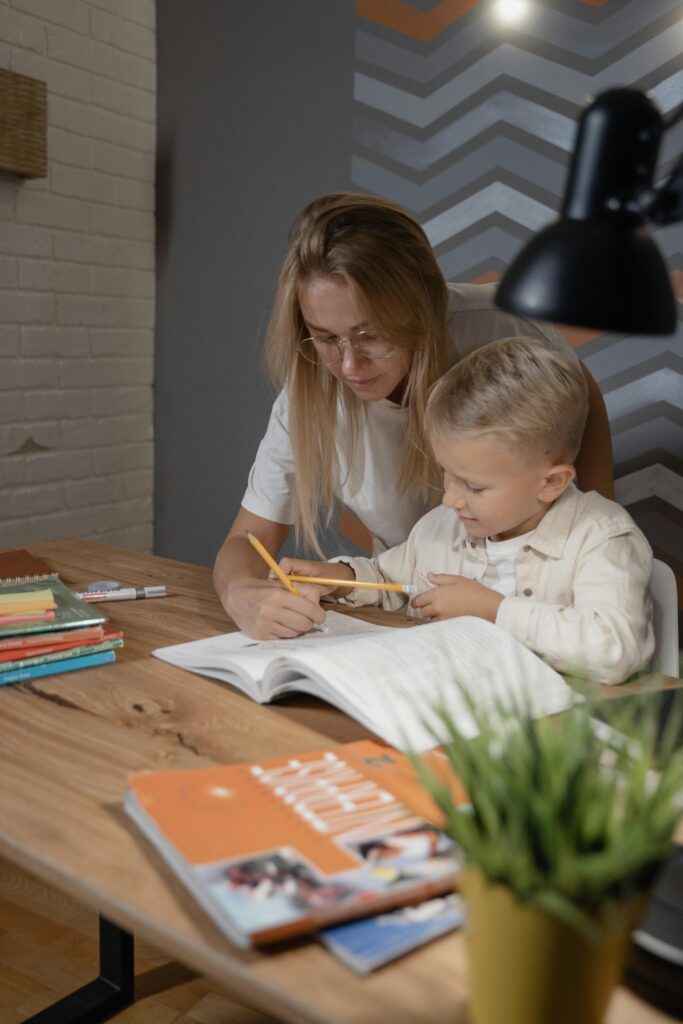Have you ever stopped to calculate all the ways homeschooling is a blessing? Once you get started, you may have a difficult time finding a stopping point. Individuals, families, and societies all reap the incredible benefits of homeschooling. We will explore this in detail in this post.
Before we begin I would like to share this Babylon Bee style article with you. It won’t take long for you to catch the drift of this parody. When I first read this as a fairly new homeschooling mother, some of the analogies seemed a little extreme. That is no longer the case. In fact, if an updated version were to be told I am afraid this would seem more like a child’s fairy tale in comparison.
Radical ideologies such as CRT, DEI, Sexual Exploitation of children, and teachers unions have compromised the impact that Christian educators could hope to have in the public schools. The modern school system is no longer a mission field, it is a battlefield, and only soldiers trained to fight belong there. Our children are not soldiers.
The Parable of Public Pooling
Once upon a time, in a place called America, someone had an idea. It was a bold plan—one that would alter the very social fabric of the nation. It wasn’t long before word of the idea began to spread, and many people thought it was simply marvelous. In due time, after enough support had been generated, the plan was put into action.
At first glance, the plan seemed simple enough. Its proponents said it would be fair, free, and effective for all. The plan was this: to construct government-funded public pools in every community across the land.
“Every child deserves a positive swimming experience,” the plan’s proponents argued. “Only the government can truly accomplish this through our new public pool system.”
The plan had its detractors, but in the end, it went forward, and soon virtually every city and town in America had its own government-funded public pool. All the children in the community spent their days at the pool under the supervision of the state-certified lifeguards.
At first the pools seemed wholesome enough. True, there were those who said it wasn’t the government’s business to operate a pool system, but most people seemed satisfied. Things went along smoothly, and within a few generations, the government pools were entrenched in the public mind as a necessary and helpful part of society. They were as much a fixture as baseball, Mom, and apple pie.
In the course of time, however, things began to go wrong. It was observed that the pools weren’t as safe as they had once been. In fact, not only were they not safe, they were becoming downright dangerous—even deadly. Somehow, the public pools all across the land had become infested with man-eating sharks. Children were returning home scarred and maimed. Many were even being devoured alive.
It was at this point that a handful of parents across the nation became alarmed. They decided not to send their children away to the shark-infested public pools any longer. Instead, they would keep their children at home and supervise them in their own pools. In time, this new movement came to be known as homepooling.
In days gone by, homepooling had been common practice in America. But with the introduction of the government pool system, homepooling had become increasingly rare. It may seem shocking, but homepooling had even been outlawed in some states! Certainly America had wandered far from her ideals of freedom and liberty when parents were no longer able to direct their own children’s pooling.
The pioneers of homepooling were greeted with much skepticism. Most parents were complacent, content to ignore the safety hazards of the public pools. In the meantime, conditions continued to worsen, with more and more children being devoured by the sharks. Statistics reported that up to 85% of the children who went swimming at the public pool were being injured or eaten alive.
As a result, the new homepooling movement began to grow. And it was observed that not only were homepooled children surviving, they were thriving. Researchers began to take notice, and it was discovered that homepoolers performed far above their public-pooled peers on standardized swimming tests. Homepooling was beginning to be vindicated as a valid option.
In an average community in America lived a woman named Mary. She and her husband had both been raised in the public pool system, though it wasn’t as bad when they were growing up as it was today. Now, Mary herself was a young mother of three children whom she was accustomed to sending to the public pool. Every morning she would get her children out of bed, feed them a hasty breakfast, then rush them out the door to catch the pool bus. All her neighbors did the same thing. It was just how life in America worked. Then one day, she met a homepooling family at her church. She was impressed! The children were polite, respectful, and were all excellent swimmers. Mary had heard of homepooling, but had never met a family that actually did it. She realized she needed to give the matter some attention.
One day, as she was researching homepooling, her 8-year-old son arrived home on the pool bus. As she saw him limping into the house, Mary knew something was wrong. Upon inspection, she noticed he had deep wounds on his legs—a narrow escape from a shark.
That settled it for Mary and her husband. They notified the public pool superintendent that their children would no longer be coming to the pool—they were going to begin homepooling right away.
It wasn’t long before Mary became a staunch advocate of homepooling. She loved having her children at home with her. She was glad that she no longer had to fear the constant menace of the sharks at the public pool. Her children were safe at home where they belonged.
With all the blessings homepooling had brought into her family’s life, Mary expected all her friends to be excited about it too. She was sure they would begin homepooling when she told them how wonderful it was. But instead of excitement, she was greeted with indifference by many, and even with hostility by some.
One friend at church told her, “You’re overprotecting your kids. How are they going to handle the sharks out in the adult world if they don’t learn how to deal with them now?”
Another responded with a more spiritual sounding argument. “My kids are being salt and light out in the public pools. If all the Christians pull their kids out of the pools, who will reach the other kids?”
Mary didn’t think that argument made very much sense. If her kids were being eaten alive, they certainly weren’t going to be reaching many others.
Yet another mom told her, “The pools in our town aren’t like the pools in the bigger cities. They have sharks and stingrays and alligators there. Ours aren’t like that. We have a great pool system here.”
Mary soon discovered that very few people were willing to admit that the local pools had problems. “We have an above-average lifeguard-to-swimmer ratio,” another church friend said. “Plus, some of the lifeguards are even Christians.”
Great, Mary thought to herself. They can pray for your kids while they’re getting eaten up by the sharks.
As she tried to spread the word about homepooling, Mary was astonished at the indifference she saw all around her. Children were being maimed, injured, and even killed every day, yet so many seemed unconcerned.
As she continued talking to others, Mary couldn’t believe the excuses people were using. If it had been a spiritual issue instead of mere physical safety, she was sure they wouldn’t use these same arguments. After all, if the public pools had been harming children spiritually—if they were causing kids to walk away from their faith, leave church behind, or rebel against their parents—surely they would see the significance and would begin homepooling. As it was, too many parents were ignoring the issue altogether. After all, it was just a matter of their kids’ physical well-being, and apparently that was easy for many parents to ignore.
“Look,” one friend said, “if I wanted to start homepooling, I’d have to quit my job, and you know we can’t get by on just one income. It isn’t practical in the modern world. Maybe homepooling worked back in the pioneer days, but it just won’t work now—not for us.”
Mary was startled that her friend would put finances above her children’s safety. After all, this other family wasn’t destitute. They had a reasonably nice home, two cars, and plenty of extras such as cable TV, a couple of cell phones, Internet hookup, and more. Wouldn’t it have been worth sacrificing part of their lifestyle to protect their kids?
One friend was bluntly honest. “Oh,” she said, “I just wouldn’t have the patience to homepool my kids! I think it’s great that you can do it, but it just wouldn’t work for me. I’d probably kill them the first day,” she laughed.
Never mind what the sharks are probably doing, Mary thought to herself.
She was surprised at how many people were worried about socialization. “How will my kids have friends if I homepool them? I don’t want them to be social misfits,” explained one.
“Homepooling doesn’t mean your kids won’t have friends,” Mary answered. “It just means you can have more control over who your kids are with. Plus,” she added, “you won’t have to worry about all the sharks and other problems that are in the public pool.”
“That’s just like you homepoolers,” her friend retorted. “You’ve got such a ‘holier-than-thou’ attitude. You think everyone should homepool, and you have to start criticizing the public pool every chance you get. I think I know what’s best for my kids.”
Mary didn’t see how close encounters with sharks every day could be best for any kids, but she knew better than to try to reason with her friend now.
Others were concerned about their kids missing out on the opportunities afforded by the government pool system. “My son really loves the diving board at the public pool,” Mary’s neighbor said. “I couldn’t provide that for him at home.”
Others were afraid of teaching advanced swimming techniques. “I never did very well at swimming myself,” one friend confessed. “I just don’t think I could teach my daughter some of the advanced things she wants to learn.”
Mary could relate to this one. She still felt a little intimidated sometimes too. But she knew there were answers. “There’s lots of great curriculum out there that will help you—books and DVDs and all kinds of things. Lots of other people are doing it, so I’m sure you can too!”
Her friend wasn’t convinced. “Well, maybe. I don’t know. We’ll see how things go.”
As she looked around, Mary was saddened. How could her friends not realize that their kids were more important than their careers, social standing, personal free time, and all the other things that prevented them from homepooling?
Time went by. Her friends at church had been insisting for years that their kids would be fine in the public pool system. But now that the kids were getting older, they didn’t look like they were doing well. Lots of them had already become casualties of the sharks and had disappeared from the church pews. Many others walked with a limp from injuries sustained in close encounters. “It’s just a phase,” some said. “All teenagers go through this. There’s nothing we can do. We just have to believe that everything will work out fine in the end.”
“It’s tough to raise kids in today’s world,” others said. “There’s only so much you can do.”
You could have done something years ago, Mary thought. You could have done something before the sharks got to your kids.
But if Mary was grieved by those who rejected homepooling altogether, she was even more grieved by the behavior of some homepoolers.
She couldn’t believe it, but some of her homepooling friends were actually putting sharks right in their own backyard pools.
“We can’t get by with this,” Mary protested. “Our kids aren’t immune to injury just because we’re homepooling! We can’t bring the same influences that are out in the public pools into our homepools and expect everything to be fine. A shark is a shark. It doesn’t matter if it’s in the public pool or in the homepool—it’s still going to hurt your kids!”
Some who had begun well decided to quit homepooling and started sending their kids back to the public pool. They seemed to have forgotten why they started homepooling in the first place. Mary couldn’t understand it. She knew she was going to keep homepooling all the way through to the finish.
Mary saw the cost of sending her kids back to the public pool. Yes, there were times when homepooling was difficult and taxed her patience. But what was that compared to the heartbreak of seeing her children come home from the public pool with ugly wounds and scars—or worse, perhaps seeing the day when they wouldn’t come home at all? Yes, there were times she wished she could go back to her old job, make more money, and have a more luxurious lifestyle. But what were the luxuries of this life worth in comparison to the blessing of knowing her kids were safe and happy at home?
Mary knew she was unnoticed by the world. She knew she might forever miss out on the acclaim and praise of man. She knew she would probably never achieve success as our world defines it. Many said she was wasting her life. But Mary didn’t care. How could she? Wasn’t it worth any sacrifice to raise her children for the glory of God? Wasn’t it worth any cost to see them reach adulthood whole, happy, and vibrant? Yes. A thousand times yes.
Home School Enrichment Magazine July/Aug 2011 Edition
Benefits of Homeschooling #1: Fewer Shark Bites
As a new mother there were several things that caught me by surprise, things that I wish I had been prepared for. Because a lot of these things involved my child and their discomfort I decided that I needed to get serious about this mom life and arm myself ahead of time with knowledge and wisdom. Thankfully, I was able to glean some of both from books, bloggers, teachers, and older women.
Many times we don’t know what we don’t know. When it comes to our children’s health and development we cannot afford to learn only by hindsight. This world is too evil, too hungry to devour your child that you cannot leave their well-being and development solely to others. God has placed our children specifically in our home for a purpose. He also promised to provide us with what we need to rear them well if we will just ask.
"If any of you lack wisdom, let him ask of God, that giveth to all men liberally, and upbraideth not; and it shall be given him." - James 1:5
It is not good enough to simply send your child into the public education system, sprinkle a little prayer over them each day, and call it good. When something you were not prepared for takes place and your child is harmed either physically, emotionally, developmentally or spiritually, the consequences could be devastating. Knowing that you had the ability to prevent it would leave a haunting guilt.
Life in this sinful world is painful enough. By preparing them at home we are able to help them navigate the waters with a little more skill when the waves get too rough for their abilities. They develop the strength and skill to adapt and overcome because they had the right guide. The guide God gave them. When it is time to jump in on their own, they can navigate life’s rough waters with confidence.
Benefits of Homeschooling #2: The Learning Lifestyle
The learning lifestyle is my personal favorite of the benefits of homeschooling. Whether you are researching a history curriculum, pre-reading your 3rd grader’s book list, or just investigating rock formations in your area, bam! it will hit you. You are now a full on nerd, an investigator, a bookworm, glasses and all!
Educating your child at home makes learning fun again. When your children have questions, you will want to have some answers. Know where to look besides Google to find what you need. Sharing in a common quest will become the norm and invigorating discussions will follow. This is the learning lifestyle.

Local monuments, museums, art collections and botanical gardens are all opportunities for more than just collecting information. Each of these provide additional opportunities for you to observe your child as they interact with learning. You will see and understand their giftings and passions first-hand as they are presented with new learning experiences.
As their learning horizons expand, you will better be able to emphasize educational pursuits in one area while eliminating other pursuits when there is no need to go further. Much valuable time and resources are often wasted on unnecessary and low-value pursuits. Wisdom allows us to evaluate each opportunity with insight as we guide our child’s education individually.
Benefits of Homeschooling #3: Family and Interpersonal Relationships
“And thou shalt teach them diligently unto thy children, and shalt talk of them when thou sittest in thine house, and when thou walkest by the way, and when thou liest down, and when thou risest up.” - Deuteronomy 6:7
This command in Deuteronomy makes it pretty clear what God expects from parents. It is pretty difficult to talk about and teach God’s ways to our children if we are not there with them as they rise up, sit in our house, and walk along the way.
Home education affords us this time. These moments shared with our children in purposeful pursuit of mental, physical, and spiritual development should not be taken for granted. As this consistent personal interaction takes place, relationships are forged. Relationships with parents and siblings rather than relationships with teachers and classmates who likely do not share your values.

One of the often overlooked benefits of homeschooling is the robust social development your child will likely display. Being home opens up an entire world of educational opportunities to your child that would likely be missed were they to spend 8 hours a day in a classroom.
Bringing meals to a couple with a new baby, visiting the nursing home with your homeschool orchestra to play for and talk with the residents, skillful development of passions such as art, music, nature, or engineering with instructors you have selected and chosen based on their values and expertise. Through purposeful interaction your child(ren) learn to effectively communicate and respond to a wide array of ages, not just their peers.
Lastly, it is good to be reminded that we are never to make decisions out of fear. We should make an accurate and careful assessment of the situation then plan our response. Make sure you are clearly running toward something rather than running away from something. Your family purpose and mission should guide you as you plan your child’s educational goals.
“A prudent man foreseeth the evil, and hideth himself: but the simple pass on, and are punished.” - Proverbs 22:3
Today’s technology has really made home educating your child with excellence achievable; even if you choose to pursue and old-fashioned education. You can experience first-hand the benefits of homeschooling your family. Ask the questions, plan the path, make the time. Your children really are worth it!

Let me know what thoughts and questions you have about what I have shared here today. It would be my pleasure to help you join the learning lifestyle.

